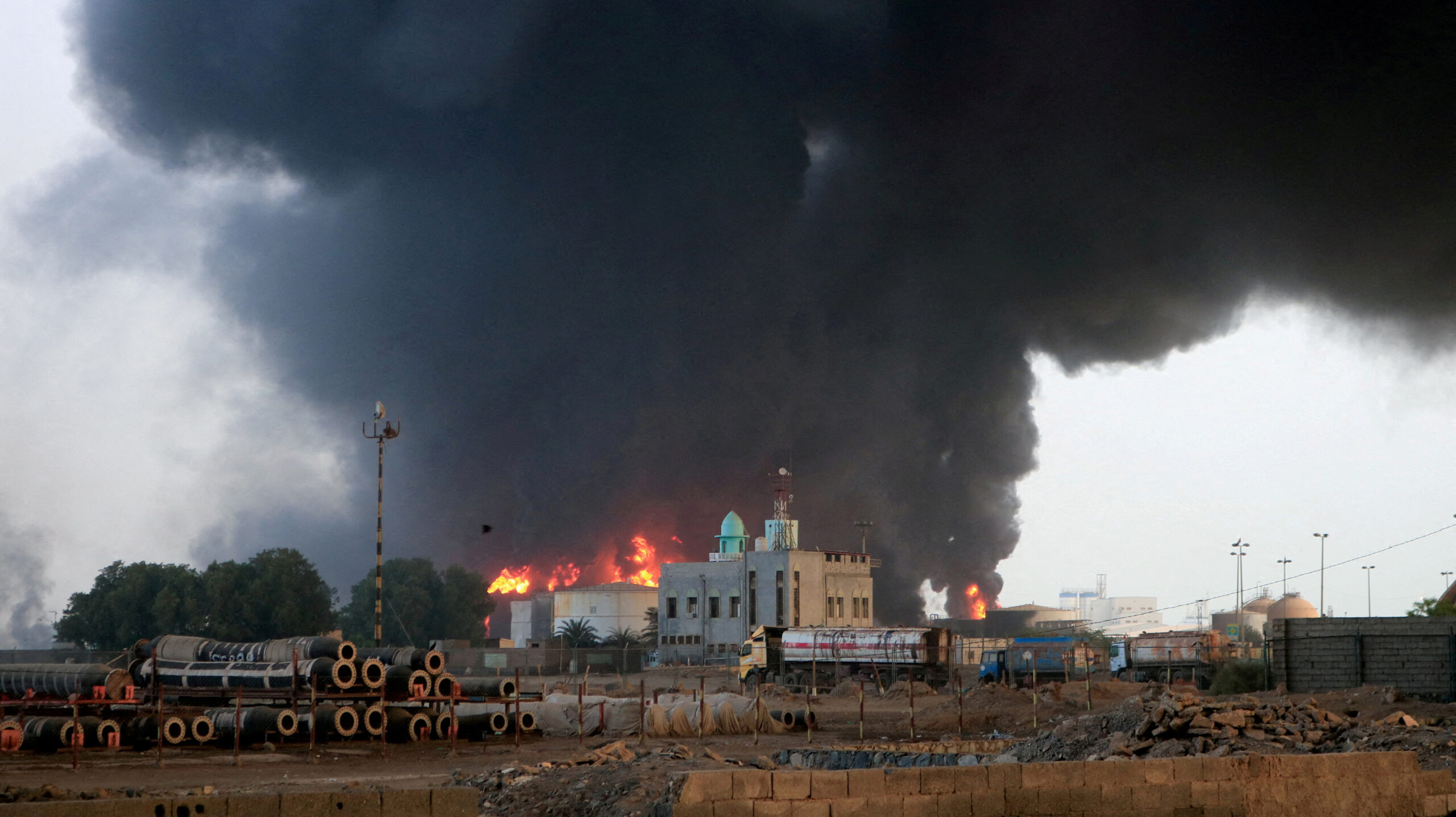Red Sea region faces renewed hostilities as Israel launches strikes on Hodeidah, Ras-Isa, and as-Salif ports, prompting fresh missile attacks by Yemen’s Houthis
The conflict in the Middle East has taken a fresh and alarming turn, as Israel launched airstrikes on key port infrastructure and a power plant in Yemen, controlled by the Iran-backed Houthi rebels. The strikes, which hit the ports of Hodeidah, Ras-Isa, as-Salif, and the Ras Kathib power station, mark a significant escalation, drawing a swift retaliatory response from the Houthis.
💥 Israeli Military Confirms Airstrikes
The Israeli military stated on Sunday that it had targeted port facilities and a radar system mounted on the Galaxy Leader — a ship seized by the Houthis and docked in Hodeidah. These attacks are the first Israeli strikes on Yemen in nearly a month and come after Israeli air defense intercepted a missile fired by Houthi forces earlier the same day.
🚀 Houthi Retaliation: Missiles Target Israeli Cities
In a fiery response, two missiles were launched from Yemen towards Israeli territory. According to Houthi military spokesperson Yehyaa Saree, the targets included:
- Ben Gurion Airport
- Ashdod and Eilat ports
- Ashkelon Power Station
“These attacks are in retaliation for Israeli aggression,” Saree said in a video statement. While Israel’s emergency services confirmed no casualties or impact from the missiles, interception efforts were underway, and assessments were ongoing.
🛑 Houthis: “We Repelled the Aggression”
Houthi-affiliated Al Masirah TV and Saba News Agency confirmed the strikes and reported limited damage. Spokesman Ameen Hayyan Yemeni claimed that Houthi air defenses forced Israeli warplanes to retreat, using locally manufactured surface-to-air missiles.
“There was about 30 minutes of air clashes. Our forces are prepared to respond to any future aggression,” said Hayyan.
🔥 Red Sea Tensions and Global Shipping Threats
The airstrikes come shortly after an unclaimed grenade and drone attack on a Red Sea cargo ship, causing the crew to abandon the vessel. Though no group has taken responsibility, the UK Maritime Trade Operations (UKMTO) office said the assault bore similarities to Houthi tactics.
Since the start of Israel’s war on Gaza in 2023, the Houthis have launched over 100 attacks on Red Sea commercial vessels, and fired hundreds of missiles at Israel, citing solidarity with Palestinians.
🇱🇧 Parallel Attacks in Lebanon
In a related escalation, Israeli airstrikes targeted multiple Hezbollah positions in southern Lebanon and the Bekaa Valley, hitting what Israel described as strategic weapon storage facilities and launch sites. This comes despite a November 2024 ceasefire with Hezbollah, which Israel now claims has been violated.
🧭 Regional Instability at a Critical Juncture
This escalation adds to an already volatile situation in the Middle East:
- Ceasefire talks in Gaza hang in the balance
- U.S.-Iran tensions remain high after airstrikes damaged sensitive nuclear facilities in Tehran
- Yemen’s internal stability continues to deteriorate amid external bombardments and ongoing civil unrest
With multiple fronts heating up — including Gaza, Lebanon, Syria, Iran, and now Yemen — regional analysts warn that the risk of a broader, multi-state conflict is increasing.
📝 Final Thoughts
The renewed hostilities between Israel and the Houthis mark another flashpoint in a conflict that continues to expand far beyond the borders of Gaza. As both sides vow further retaliation, and regional powers closely monitor the developments, diplomatic intervention may be the only path left to prevent a full-scale regional war.
Stay tuned for real-time updates and in-depth analysis on the unfolding situation.



